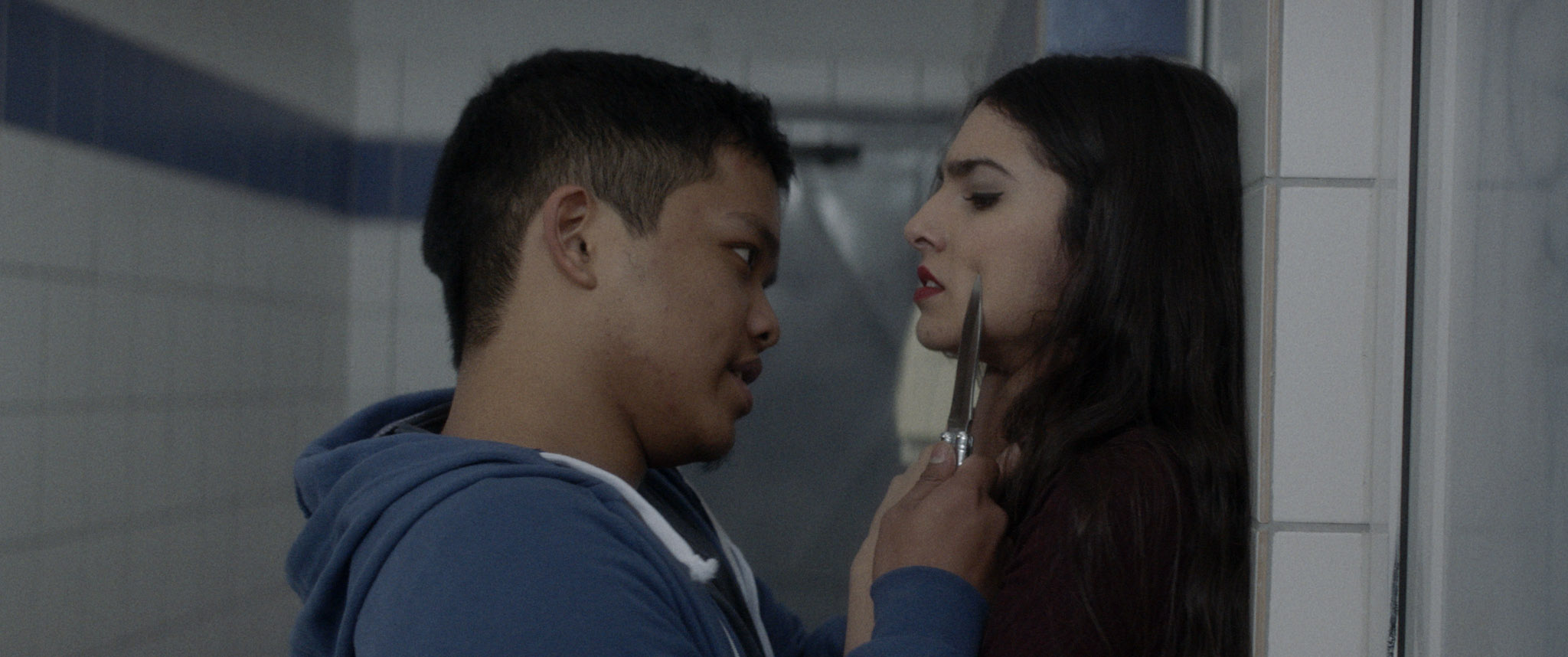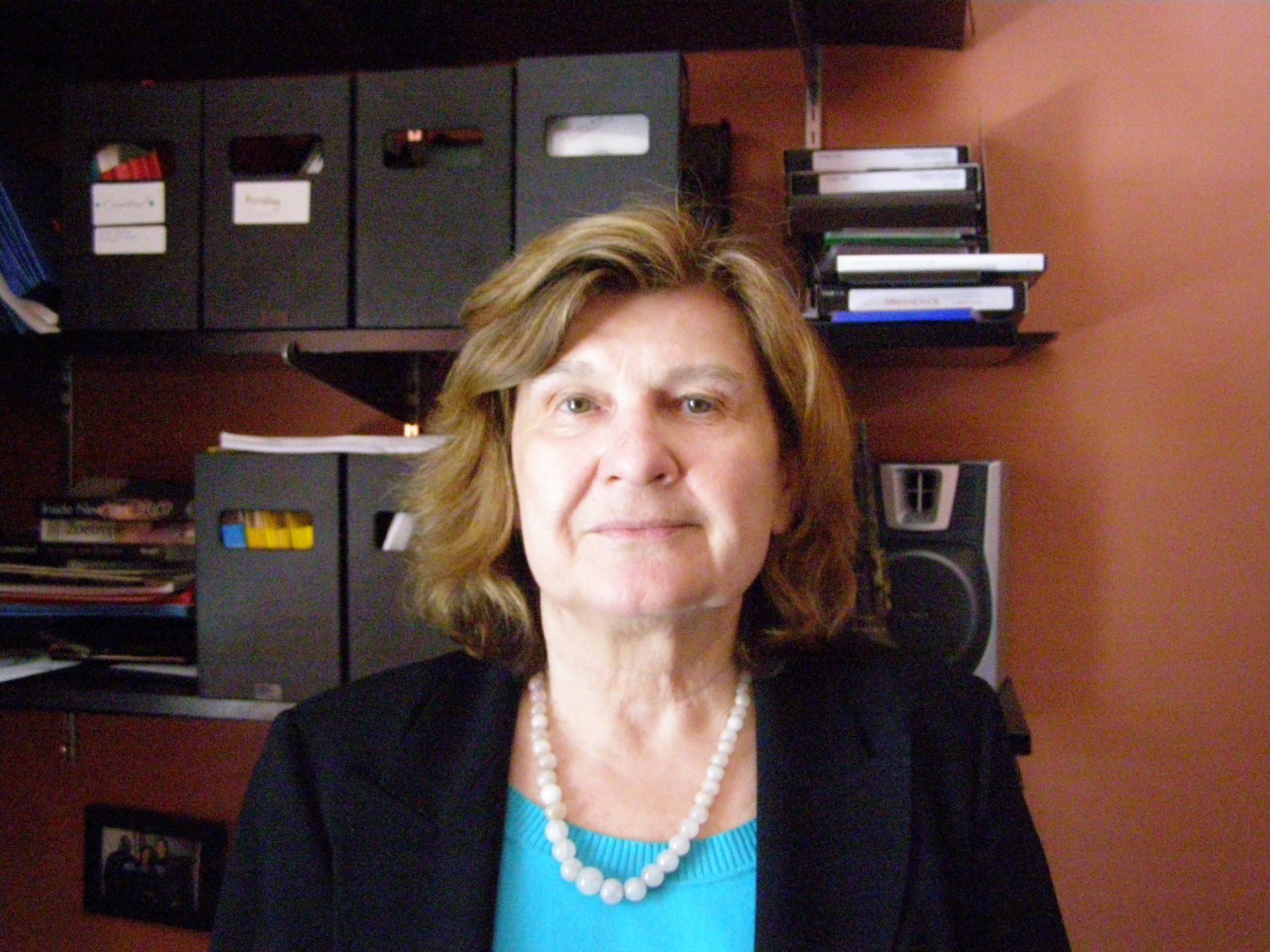Interview MARIA LAFI
 Camera Lucida: After the Syrian crisis and the arrival of refugees, did this influence your decision that the film was to focus on the conditions for immigrants in Athens?
Camera Lucida: After the Syrian crisis and the arrival of refugees, did this influence your decision that the film was to focus on the conditions for immigrants in Athens?
M.Lafi: I grew up in Athens and in a similar area to the film. Eventually I ended up living in the actual area where the film is set. So I was wondering how these people manage as they are immigrants and not refugees, because they had been living in Athens a long time. In 2014-2015 when the refugees started arriving, it was a different economic situation to that of the immigrants. There were already people who were here and were used for human trafficking and prostitution and had their passports taken off them. It made me realize how trapped people are. In the film I have people from different communities; I have the Philippines, I have the Nigerians and I have the Albanians and the Greeks of course. Every community that was coming, they were coming a lot and they somehow found their places in the Greek society. They are born in Greece but they don't really have an identity. The Greek state doesn't provide for them, they have no papers, and this is a huge matter in Greece. The young Philippine actor in the film was born in Greece. His 14-year-old brother was arrested in a Police operation and they wanted to send him to the Philippines. This boy knows nobody in the Philippines and he doesn't speak the language. Fortunately he had good lawyers in the community but this was after spending two weeks in a cell which is too much for a young boy. These kids were born in Greece; they go to a Greek school, so they should have papers. So this was something that I wanted to speak about.
Camera Lucida: Were the characters and dramatization in the film inspired by real events that you knew about?
M.Lafi: The story began as an idea. I always had in my mind that I wanted to make a film for the Greek Easter and I was thinking how I would do this in a story. In 2010 there was an incident in this area with a 15-year-old boy from Afghanistan and with his mother and his sister. His sister finds a box in a bin and she didn't know what it was. She showed it to her brother and there was a box which blasted and the boy got killed. The little girl and the mother were injured but they didn't die. That was the beginning because I started thinking about how I could combine things. So we have Easter which I always like to celebrate and I thought about the bit whose life got destroyed. The mothers are giving sleeping pills to their babies because they don't have food to give them and they have to work. Also the post between the countries gets lost. A lot of the women who work as maids in the houses become pregnant and there was this particular case about the wealthy owner of a house who took a baby to a very specific hospital where the babies are sent to the Netherlands for adoption. So I combined these stories in my film because if you tell someone who isn't aware this is taking place in societies they will think it is too much, but the stories are true.
Camera Lucida: Have the main actors like Nena Menti and Luli Bitri been in other films before now?
M.Lafi: Nena is more of a theatrical actress and is very famous in Greece, one of the best we have. She has made some films, not a lot, but I think she is brilliant. When I was writing the script with my co-writer Elena Dimitrakopoulou, we were discussing Nena from the very beginning as being someone we would like to have in the film. Nena came on board very early because I approached her in 2014 and I told her that we liked her, to read the script, but that I didn't know when I was going to shoot it. She really liked the script and she was waiting for us. Luli I have seen in films like Amnista (Amnesty, 2011, Dir: Bujar Alimani) and I didn't have a second thought. I think she is great and I really wanted her in the film. I think she makes a really big difference to the film.
Camera Lucida: The good thing about the film is that you really engage with the characters, you start to go along with them and feel for them, especially Luli Bitri's character of Adia.
M.Lafi: It's true. I met a lady in an Athens Square and she was from Africa. It was 2 o'clock in the morning and she had a little girl with her who was four-years-old and was playing around in the square. Eventually I started talking to her mother and was wondering why they were out so late and she told me that she doesn't have any other time to play with her daughter. I was so shocked by this and it helped me form part of the story in the script.
 Camera Lucida: Regards the film itself, when was it first premiered?
Camera Lucida: Regards the film itself, when was it first premiered?
M.Lafi: It was in the Tirana International Film Festival in November of 2018, where I won the Best Film Award in the Balkan section, and played immediately afterwards at Thessaloniki in the Greek Film section.
Camera Lucida: After Prishtina, where is it scheduled to go next?
M.Lafi: It's going to play at the Alexandria Film Festival and I am really happy about that. It's going to be in Columbia at the Human Rights Festival which I think is important. The Spanish speaking countries really like the film, it's playing at Spanish film festivals, and it's going to be in Cottbus in November, not in the main competition but in a parallel program. The office has sent it to Munich for entry as well. I think the most important thing for the film is that it is going around the festival circuit. Of course I am happy if the film gets awarded but it's most important to show the film, not to make the film and put it in a drawer. Here there were 80 people at the screening and I like that, it is the reason I made the film.
Camera Lucida: After the festival run of this film comes to an end, are you currently in development for another feature film?
M.Lafi: Yes, we are writing the script already but I don't know how I am going to find the money as yet. We have a first draft, applying to Film Script Labs and to the Greek Film Center for development funds. If you already have some money it is easier to apply because the labs are a bit expensive. It's difficult because we do everything by ourselves and of course I have a producer but she is trying to make her office work, so I have to check a lot of things by myself.
Steven Yates

